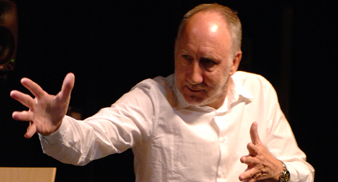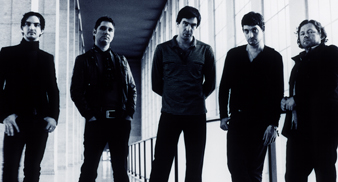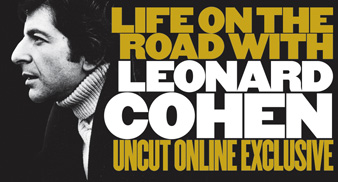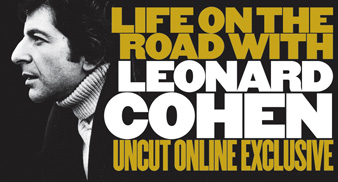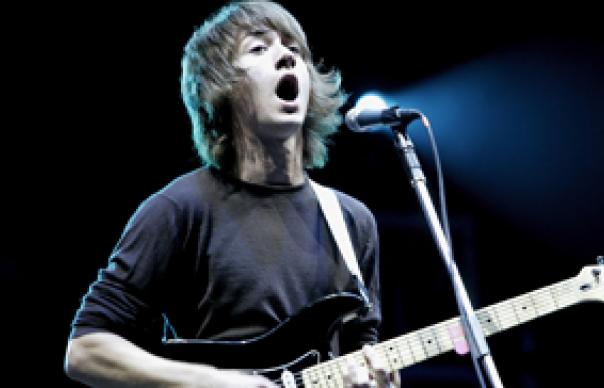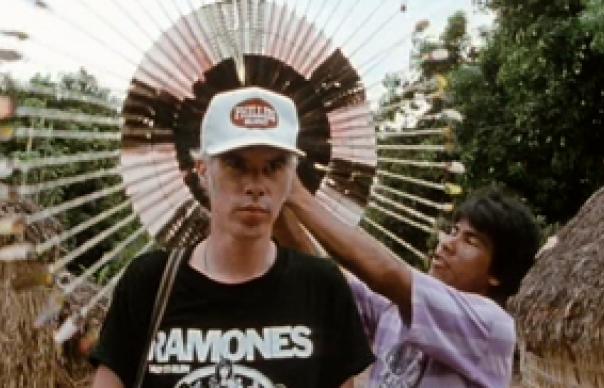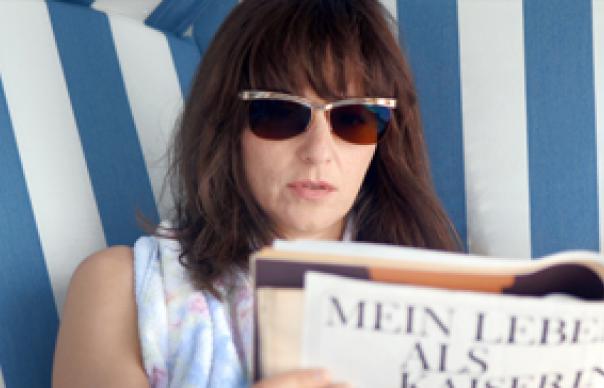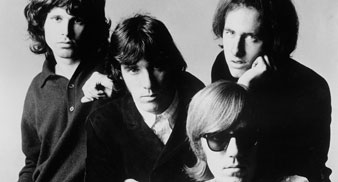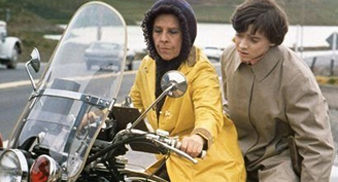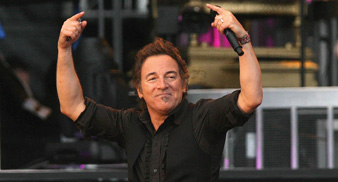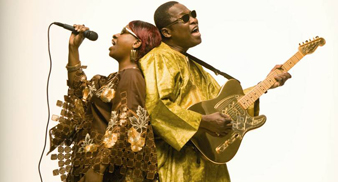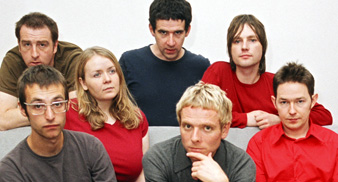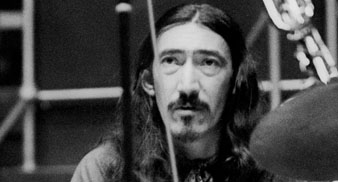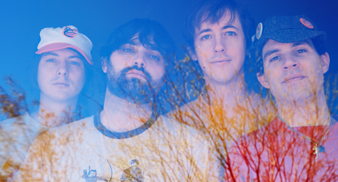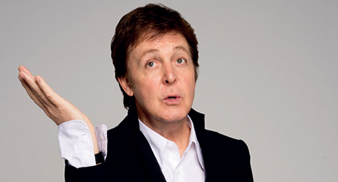Hallelujah!: LEONARD COHEN SPECIAL
In the December issue of Uncut, we celebrate Leonard Cohen’s comeback by getting the inside story from his bandmates on their extraordinary year on the road. Here at www.uncut.co.ukover the next month, we’ll be posting the full, unedited transcripts of those interviews in a new, seven-part series.
Today we present trusted guitar technician, Leif Bodnarchuk.
Self-described “mercenary, Buddhist, jerk,” Bodnarchuk is trusted guitar tech on the tour, a job he summed up for the roadie’s online bible, *Sure Notes*, thusly: “Day to day, you take it out of the box, tune it, fix it, play with it, let some famous man or woman play with it, put it back in the box and put that box into the truck-shaped box.…”
Part four of seven, is coming up on November 12!
****
UNCUT: When did you get involved?
BODNARCHUK: I got involved in April this year. I think the band rehearsed from around February until May, give or take. This leg, they were in for less than two weeks. They seem to have it covered.
How’s it going?
In a nutshell: OK. We’ve just been in rehearsals for a couple of weeks in LA, following a three week break after our gruelling Canadian/European trek of May-July. We’re set to be out until the very end of November on this run, with a December break; if rumours are to be believed, we shall get another crack at it in early January with rehearsals and gigs to follow.
What does the job involve?
My job involves looking after Bob Metzger’s and Dino [Soldo]’s guitars; 4 electrics, two acoustics, a National/Dobro sort of dealy and a pedal steel guitar. During the last leg, I was looking after Bob, Roscoe [Beck], the bassist/MD and a couple of 22-string harps belonging to Hattie Webb, but that was crazy! Too many strings – 114 per night – that translates into 19 guitars belonging to 4 other sets of ears – sod that! Thankfully, we drafted Chris Bynum in to halve my workload. He’s a very welcome addition to our dysfunctional family. I don’t look after Leonard personally, Mickey Sullivan does. Mickey also looks after Javier’s instruments. Basically, Mickey’s the acoustic guy, I’m the electric guy. but in a pinch, we all look out for one another anyway. It’s a pretty cozy atmosphere on stage left.
How hands on has Cohen been with the production?
Well, I haven’t seen him in the truck! He is actually very aware of what’s going on. He’s as sharp as a tack, approachable, generous and humble. I saw one article describing him as the godfather of misery! That couldn’t be further from reality. But if he’s not happy with something in the gig, he’ll let it be known. We respect him a great deal, so if the man asks for something, we try our best to make it happen. He doesn’t ask for anything outrageous, nor does he throw tantrums – and I’ve seen my fair share of those from a few pop stars.
Does he have any special requirements with guitars and amplification and so on?
On stage, he plays Godin guitars for a few songs, dropped down in key. We were using an SWR amp, but he’s not all that bothered with sound coming from behind him; he’s fine with it in his monitors. And it’s one less thing on stage with a mic, picking up other things. He seems genuinely interested in the quality of the final product on a nightly basis. He’s not selfish – he just wants to play his part. As for “so on” you could stick him in a broom closet and he’d be happy. He’s an inspiration to us – how to be happy with what you have and not long for what’s not there.
What have the highlights been for you?
The first show, Fredericton was a mind blower – the initial audience reaction to Leonard’s presence on stage was amazing. I don’t think I’ve ever seen such a genuinely enthusiastic reception. I’ve see kids go wild, but this older audience was incredible. Over on stage left, we were stunned! I don’t think I’ve seen a stage entrance reception that rivals it. The Dublin crowd are my personal running favourite; they sang the loudest and had the most fun of that leg. And the crowd in Glastonbury was overwhelming. It was a surreal experience. Call me crazy, but even I got a little emotional!
Has the tour changed or evolved since it started?
It has changed a little – all tours do. We all know one another a little better now than we did in the beginning. Right now, we have a good feeling. We’re in a “been there, done that” position.
INTERVIEW: JOHN LEWIS



